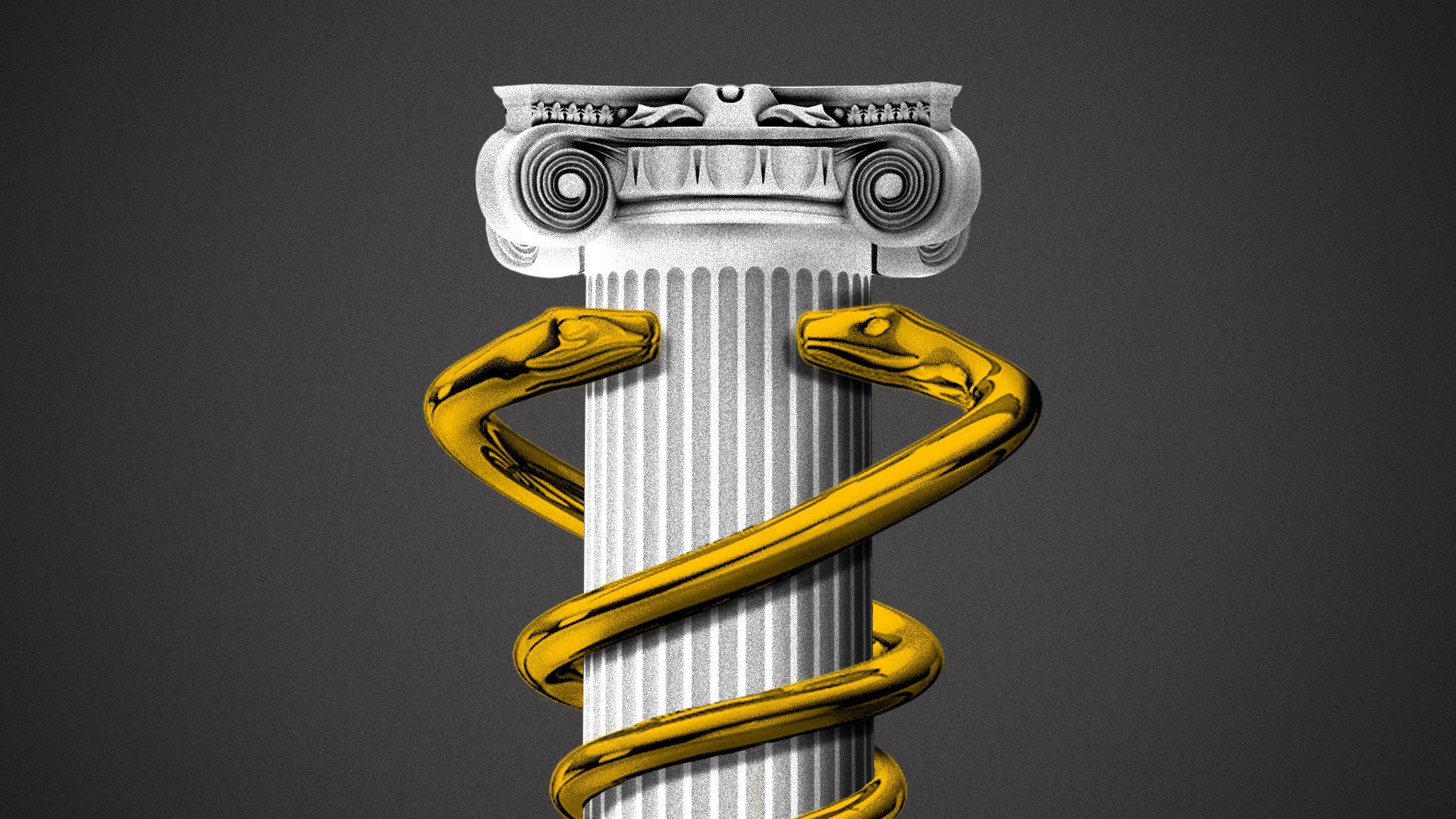A six-week abortion ban seems imminent in Tennessee
Add Axios as your preferred source to
see more of our stories on Google.

Illustration: Shoshana Gordon/Axios
Abortion providers acknowledged a court order blocking a six-week abortion ban in Tennessee "is no longer warranted" after the U.S. Supreme Court ruling last week that overturned Roe v. Wade.
- The six-week ban could go into effect as soon as Tuesday, ahead of a near-total ban next month.
The latest: In a federal appeals court filing Monday, the providers said their lawsuit challenging the six-week ban had become "futile" following the high court's ruling, which gave states the right to regulate abortion access.
- The six-week ban was passed into law in 2020 before it was blocked by the court challenge.
Why it matters: The abortion providers and the state agreed that the Friday ruling fundamentally altered the legal landscape.
Driving the news: The state attorney general's office urged the Sixth Circuit Court of Appeals to allow the six-week ban to go into effect "as soon as possible," saying any delay "costs the lives of Tennesseans and violates the State's sovereignty."
Context: The 2020 law makes it a crime to perform an abortion after a fetal heartbeat can be detected, usually six weeks into gestation.
- A 2019 "trigger law" will lead to a more comprehensive ban. That will take effect 30 days after the Supreme Court issues its judgment on Dobbs, which should happen by mid-July.
- But providers say the six-week ban would limit abortions in Tennessee "for nearly everyone" because many individuals do not know they are pregnant before six weeks.
State of play: Planned Parenthood's clinic in Nashville was not performing abortions Monday, in anticipation of the six-week ban.
- The clinic will continue to offer other services, including health screenings.
- Abortions for life-threatening pregnancies, which will be allowed under a narrow exception to the state's ban, will likely be performed in hospitals.
Between the lines: The latest filing underscored the new strategy for abortion providers in Tennessee, who are focusing their efforts on helping patients cross state lines to pursue the procedure.
- Illinois providers are preparing for patients from Middle and West Tennessee. Planned Parenthood is also partnering with providers in North Carolina, Virginia and Florida for patients in East Tennessee.
What they're saying: "We are going to continue to provide sexual and reproductive health care," Ashley Coffield, CEO of Planned Parenthood of Tennessee and North Mississippi, said during a media briefing after the ruling last week.
- "We are going to continue to help patients access abortion even though we can't provide it here at home."
Editor's note: This story has been updated to reflect that the trigger law will take effect 30 days after the U.S. Supreme Court issues its judgment on Dobbs, which should occur by next month. Tennessee Attorney General Attorney General Herbert H. Slatery III's office originally indicated in a filing that the law would take effect 30 days from Friday, June 24.
